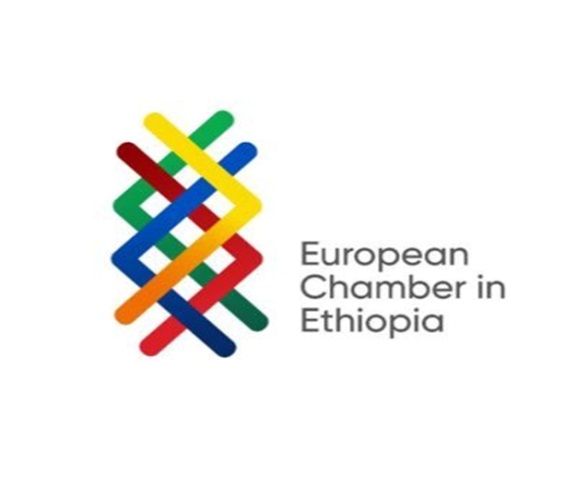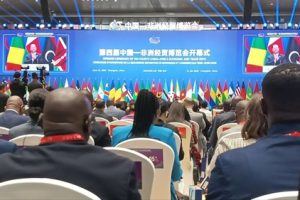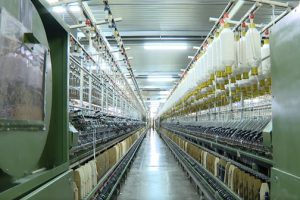
The government of Ethiopia has tried various ways to make sure that the country is on the right track regarding its economic, social and political aspects. The incumbent has also passed numerous decisions in order to scale up the economic environment by attracting investments to the country. Due to this, Ethiopia now is striving to become one of the hubs of investment in the world by opening itself to the world’s economic platforms.
Recently, two policy briefs that are recommended by the European Chamber of Commerce were launched at Hyatt Regency Hotel, here in Addis with the attendance of responsible stakeholders both from private and public firms including government representatives.
The European Chamber in Ethiopia announced two policy briefs aimed at contributing to the improvement of the investment climate in Ethiopia. The research documents titled ‘Solving the Crunch: Recommendations for FOREX disbursement challenges’ and ‘Optimizing Customs Processes: Key Issues to Tackle’, delve into challenges foreign and domestic investors face in Ethiopia and present key research findings and policy recommendations to be considered by the government.
The study that was set to bring policy briefs were conducted by the European Chamber in Ethiopia in collaboration with the EU funded Technical Assistance for Business Environment and Investment Climate, including e-government (BEIC) project.
The study has pointed out some key findings on FOREX challenges and customs laws. Regarding the nation’s FOREX challenges, the study has forwarded results including poor export performance that relies on limited export, lack of transparency and accountability in FOREX disbursement, FOREX shortage and the presence of parallel foreign currency exchange markets.
Providing incentives for exporters, rewarding legal remittances, diversifying export destinations, implementing import substitution plans and reviewing the effectiveness of FOREX prioritization to some sectors, are some of the solutions that the study recommended.
Regarding customs related challenges, the study identified results like frequent changes and modifications of customs laws, lack of user friendliness of online customs systems, lack of involvement from relevant government institutions and issues with the Ethiopian shipping lines for the passage of goods.
The research document proposes solutions that include stakeholder consultations before new directives are issued; improving the electronic single window system; improving online communication and inspections; improving the Ethiopian Shipping Lines multimodal system and enhancing customs infrastructures, among others.
“The purpose of the study is not to point out faults or to indicate that there are still things that are lacking,” said Ben Depraetere, Board Chairman of the European Chamber in Ethiopia. “The whole purpose is to identify those areas that are open for further improvement. Over the past years, customs has made some steps to improve ease of clearance and different customs processes. However, we are not yet there. The policy brief is a conversation starter,” he said.
The policy briefs, as to the chairman, have been brought from the data gathered through an online survey, one-to-one semi-structured interviews, and focus group discussions with relevant stakeholders, including Ministries, business associations, investors, and Academics. The objective is to identify challenges faced by the private sector, in relation to accessing FOREX and Customs processes in Ethiopia, thereby creating a conducive environment for the private sector’s growth and attracting foreign investment to Ethiopia.
“The study was funded by the European Union and implemented by a team of local consultants, coordinated by GIZ’s BEIC project. The study was composed of multiple aspects including an online survey. The European Chamber has 180 members, European investors who are active in Ethiopia, so they participated in the online survey,” Ben Depraetere said.
The research documents do not aim to exhaust all potential pathways to address the challenges researched. The recommendations formulated rather aim to provide a platform for further discussion through Public Private Dialogue, Ben added.
In a similar vein, Ambassador of the European Union to Ethiopia, Roland Kobia, for his part discussed the bloc’s relation with Ethiopia and the challenges facing the business partnership. As to the Ambassador, “The EU has kept this preferential trade treatment, which is unilateral, which is non -reciprocal, only to the benefit of Ethiopia. When it comes to having no customs duties, 0 % of customs duties for all products of Ethiopia are exported to the EU, and also no quantitative restrictions.”
“Ethiopian exports under the EBA have been growing on an average of 6%. In the last five years only, the total value of exports to the EU was at approximately 140 billion Birr. Most strikingly, the exports to the EU grew the fastest last year, by 47% increase,” he said adding over the last decade, the total investment stock of European companies in Ethiopia has reached 2.5 billion Euro. That’s 110 billion Birr. These investments create direct jobs for more than 115, 000 Ethiopians.
“The European Chamber of Commerce has issued a very important report where they identify a number of recommendations in order to address the difficulties with customs and FOREX. We know how important the issue of FOREX access is to foreign as well as local companies,” the ambassador elucidated.
“The purpose of preparing this report is to discuss how we can together overcome and address these challenges that are a big impediment for more businesses to operate in Ethiopia. This report not only identifies the difficulties, but also proposes a number of issues as a solution. So I think we should have a dialogue between Ethiopia and the European Union on these issues, because it is not only to the benefit of companies, but it is really the benefit of Ethiopia as a country to be attractive for investments,” the ambassador noted.
By the same token, Customs Commission Price Valuation Director, Mengistu Tefera said, “It is good that the European Chamber prepared a study with the aim of contributing to improve the Customs processes. However, the points raised completely fail to reflect the practical processes we follow at the Customs commission. The points presented as policy recommendations today are activities that the Customs Commission is already implementing.
Contrary to the point raised by the study, the director elaborated, “One of the points mentioned was uploading Custom legislations on the institution’s online portal, which we already do. We upload legislations, proclamations and manuals on our website. Anyone can verify this by simply visiting the website. I don’t believe that the study has actually engaged with the right people to be interviewed to reflect the reality on the ground.”
The event featured panel discussions with relevant stakeholders, including representatives of the private sector, on Customs and FOREX issues. One of the participants, Degesew Amanu, Chief of Corporate Affairs at Unilever Ethiopia said, “We have participated in the study as one of the companies who are working in the manufacturing industry in Ethiopia. We have presented some areas of improvement in Customs processes during the panel discussion. One of the issues we discussed in detail is the issue of price valuation, where the product prices we submit to the Customs Commission are usually rejected. We hope to address this challenge through joint discussions so that the manufacturing industry that is currently performing below par would greatly improve in the future.”
During the event, the European Chamber in Ethiopia in collaboration with the BEIC project also launched an Investors’ Guide which provides an overview of recent developments in Ethiopia’s business environment, strategic investment sectors, and EU-Ethiopia trade relations, investment processes to new investors and key institutions and agencies important to investment in Ethiopia.
Since 2012, the European Chamber in Ethiopia (Euro Cham), formerly known as EUBFE, represents the European business community in Ethiopia. The European FDI business association currently counts 180 members, and is an independent association licensed by the EIC. Euro Cham envisions supporting Ethiopia becoming one of the most attractive business environments in Africa through an inclusive economy. It also plans to empower European Businesses in Ethiopia through enhancing information exchange, establishing networking platforms and a continuous dialogue with the Government Stakeholder for jointly improving the business climate.
BY DANIEL ALEMAYEHU
The Ethiopian Herald December 8/2023




